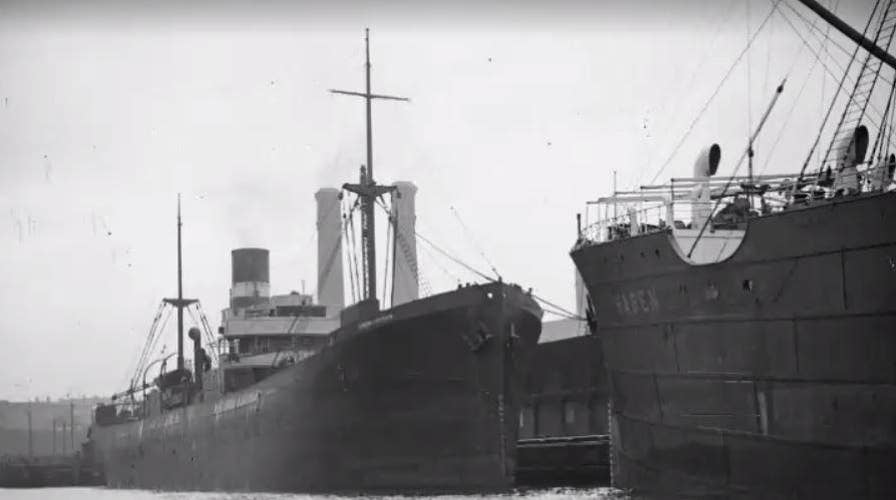WWII shipwreck discovered off Australian coast
The SS Iron Crown, an Australian freighter sunk by a Japanese submarine during World War II, has been discovered.
The wreck of an Australian freighter has been discovered 77 years after it was sunk by a Japanese submarine during World War II.
The SS Iron Crown was found in the Bass Strait between mainland Australia and Tasmania, about 62 miles off Victoria’s coast south of the border with the neighboring state of New South Wales. The ship was heavily loaded with manganese ore when she struck by a torpedo off the Australian coast on June 4, 1942, sinking just 60 seconds later. The attack claimed the lives of 38 members of the ship’s 43-strong crew.
Experts on the CSIRO research vessel Investigator used multibeam sonar equipment and a special drop camera to find the wreck off the coast of the Australian state of Victoria. An image captured by the camera shows the ship’s intact bow with railings, anchor chains and the Iron Crown’s anchors still in position.
WRECK OF US WWII B-24 BOMBER DISCOVERED 74 YEARS AFTER IT PLUNGED INTO THE SEA OFF BERMUDA
“The Iron Crown is historically significant as one of only four World War II shipwrecks in Victorian waters and is the only ship to have been torpedoed by a submarine in Victorian waters,” said Peter Harvey, a maritime archaeologist with Heritage Victoria, in a statement. “Locating the wreck after 77 years of not knowing its final resting place will bring closure for relatives and family of those that were lost at sea, as well as for Australia’s maritime community.”
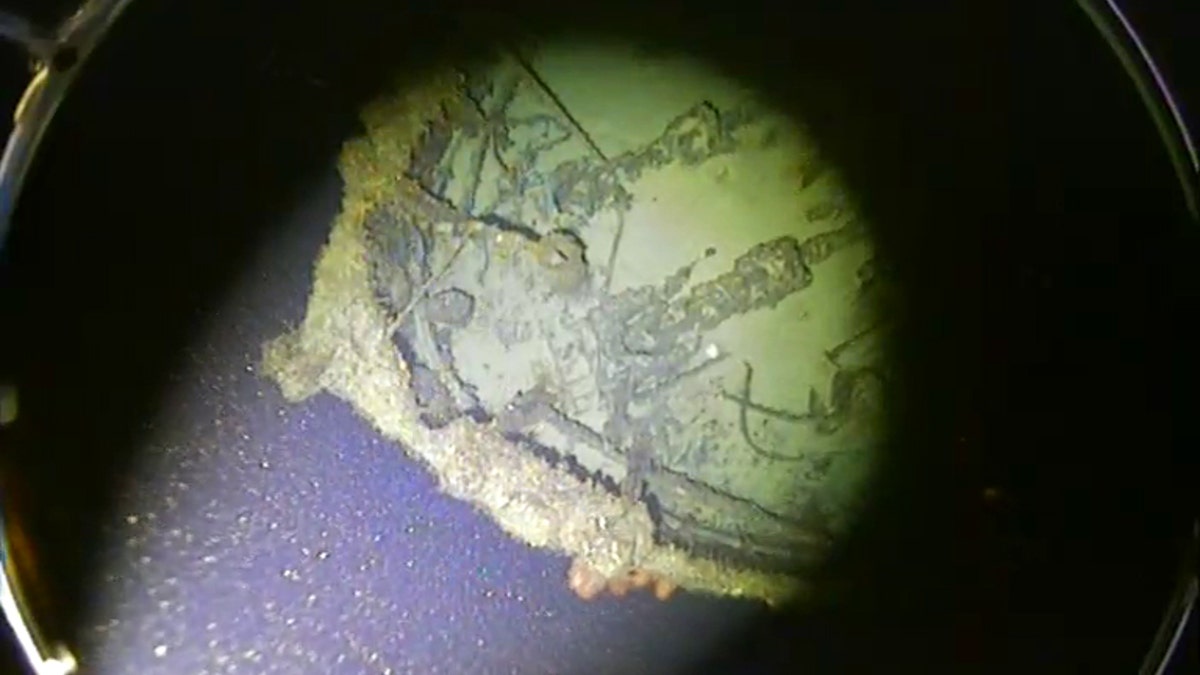
The SS Iron Crown's bow and the ship's anchor chains were caught on camera (CSIRO)
The Commonwealth Scientific and Industrial Research Organization is Australia’s national science agency.
“The wreck of Iron Crown appears to be relatively intact and the ship is sitting upright on the seafloor in about 700m [2,297 feet] of water,” Emily Jateff, curator of ocean science and technology at Australia’s National Maritime Museum, who led the search effort, said, in the statement.
WRECK OF WWII AIRCRAFT CARRIER USS WASP DISCOVERED IN THE CORAL SEA
“We have mapped the site and surrounding seafloor using sonar but have also taken a lot of close up vision of the ship structure using a drop camera," Jateff added. "This will allow us to create a composite image of the whole site to assist in follow up surveys for its conservation and management.”
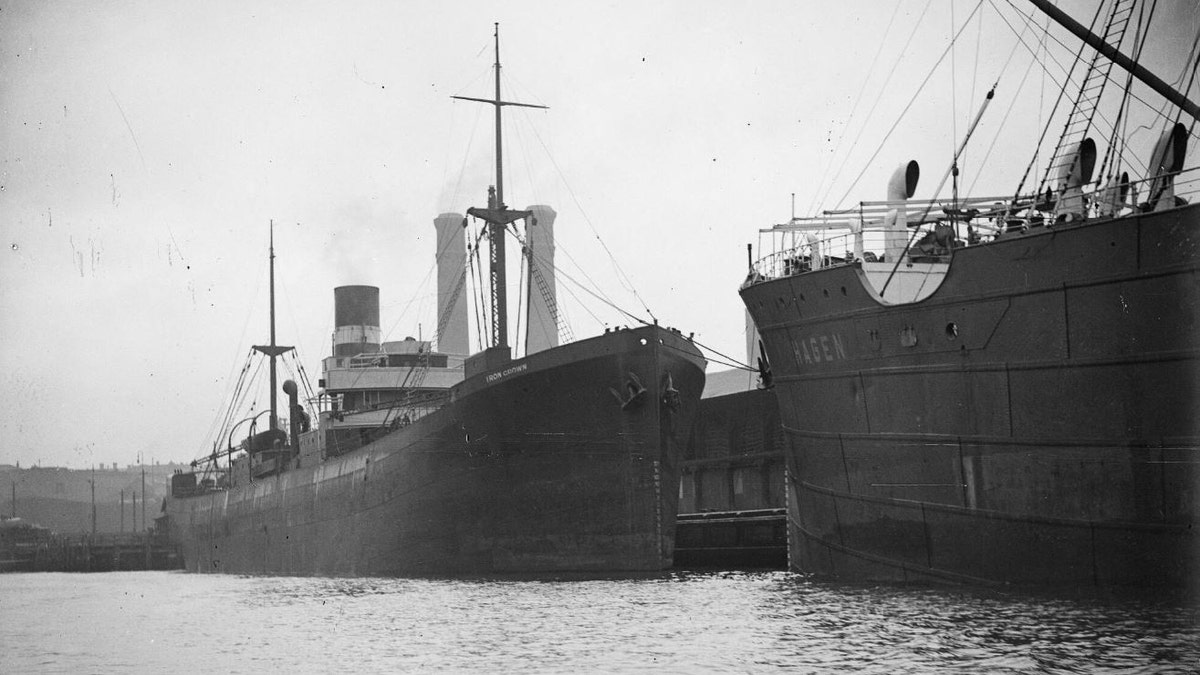
File photo of the SS Iron Crown (left) alongside the SS Hagen (National Library of Australia)
The discovery has been reported to the Australian and Victorian governments and a memorial service is planned at the site.
In 2017, the Investigator solved a 74-year mystery when it found the wreck of the SS Macumba, a merchant ship sunk during a Japanese air raid off Australia’s Northern Territory.
MAJOR WWII SHIPWRECK DISCOVERED: JAPANESE BATTLESHIP SUNK BY US FOUND
Researchers across the globe are working to locate sites of World War II wrecks. The wreck of a World War II U.S. B-24 bomber that plunged into the sea off Bermuda in February 1945 was recently discovered by a team of researchers from the University of Delaware.
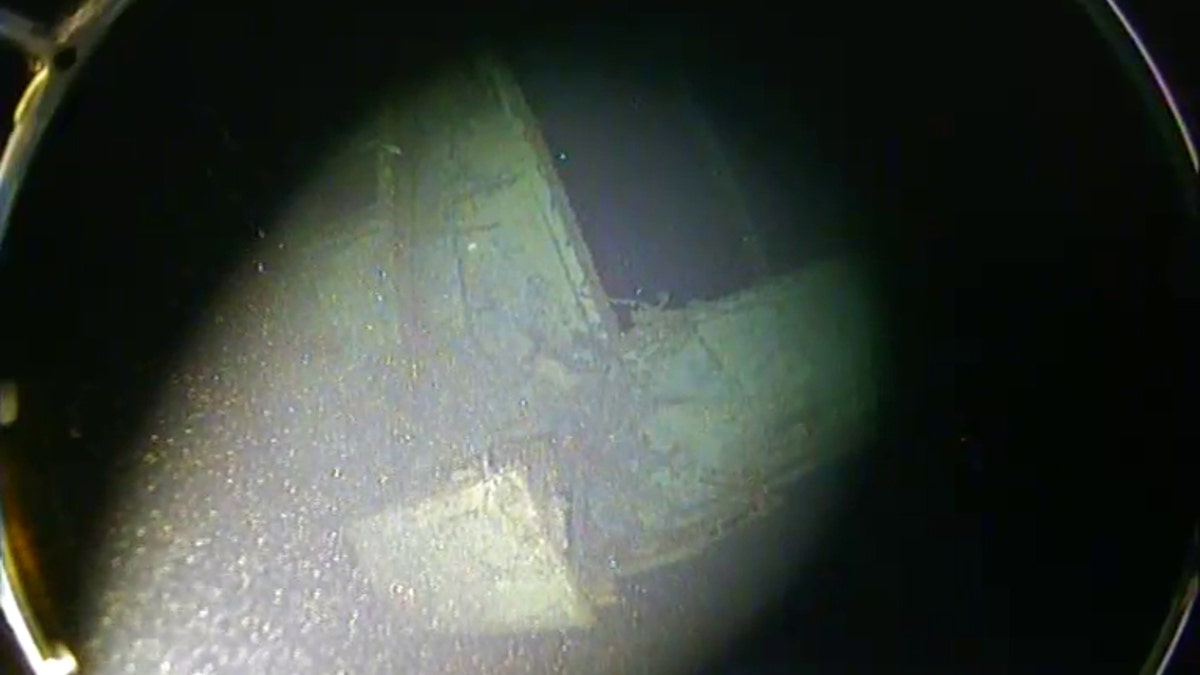
The SS Iron Crown's port side deckhouse and open cargo hold. (CSIRO)
Last month, the wreck of World War II aircraft carrier USS Wasp was found in the Coral Sea more than 70 years after the ship was sunk during the Guadalcanal campaign.
Wasp was spotted on the seabed by experts from the vessel RV Petrel, which is part of a research organization set up by the late billionaire Paul Allen.
WRECK OF THE USS JUNEAU, FAMOUS FOR THE DEATHS OF THE 5 SULLIVAN BROTHERS, DISCOVERED IN PACIFIC
Earlier this year, the RV Petrel discovered one of the first Japanese battleships to be sunk by U.S. forces during World War II. Imperial Japanese Navy ship Hiei sank on Nov. 14, 1942, in the Solomon Islands.
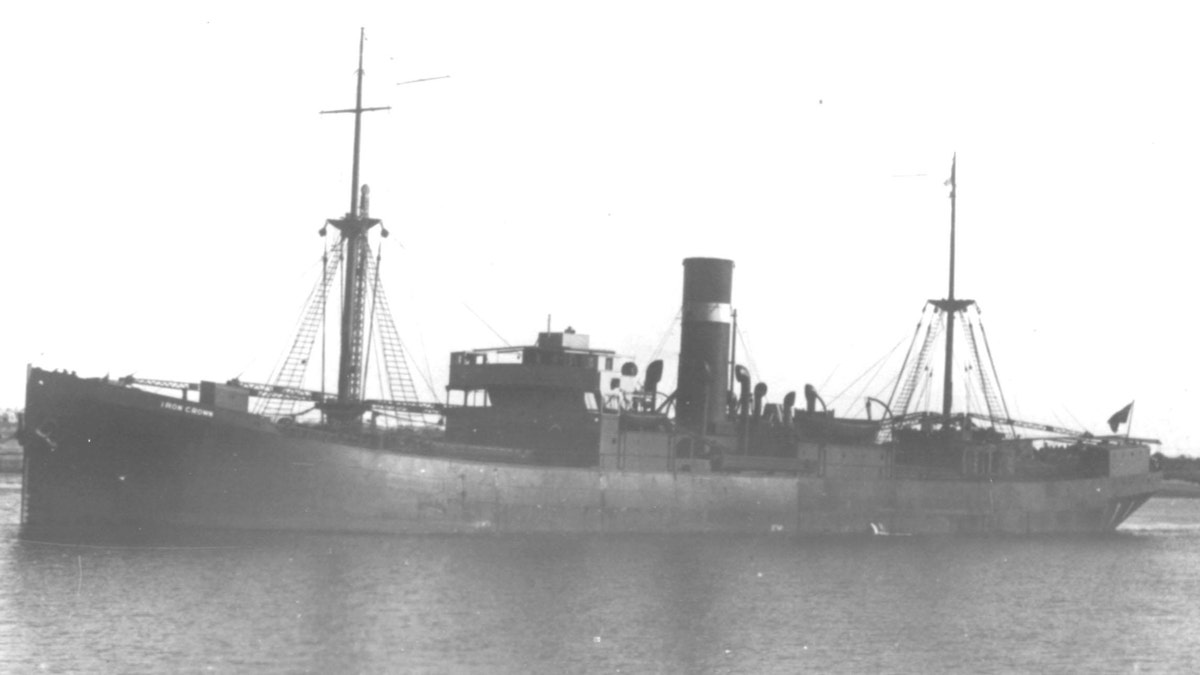
File photo of the SS Iron Crown (South Australian Maritime Museum)
Microsoft co-founder Paul Allen died in October 2018 from complications of non-Hodgkin’s lymphoma. His research organization has discovered a host of historic military shipwrecks, such as the wrecks of the USS Helena, the USS Lexington and the USS Juneau.
The group’s biggest discovery, however, came in 2017, when Allen and his team found the long-lost wreck of the USS Indianapolis in the Philippine Sea.
WORLD WAR II FIGHTER PLANE FLOWN BY 'GREAT ESCAPE' PILOT DISCOVERED ON NORWEGIAN MOUNTAIN
In a separate project, the wreckage of U.S. B-24 bomber, for example, was found in Papua New Guinea. The plane’s wreck was found in 2018, 74 years after it was shot down during a fierce battle with Japanese forces.
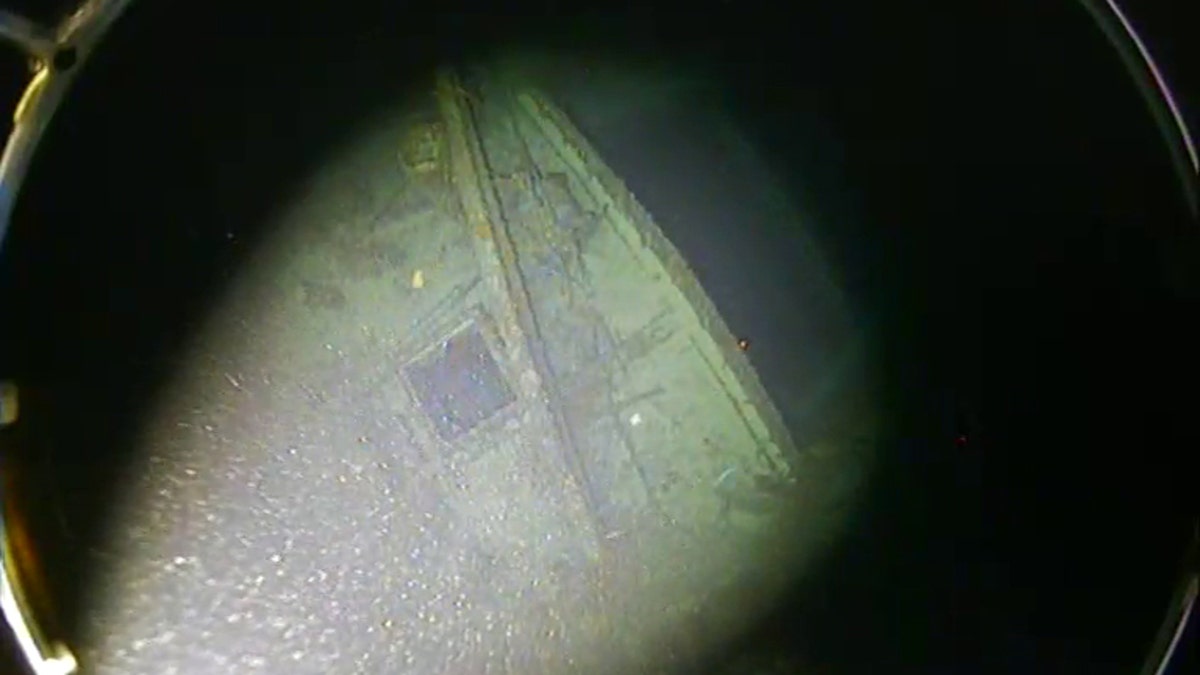
Debris can be seen on the SS Iron Crown's bow near the ship's open cargo hold. ((CSIRO))
Last summer, a team of scientists from the Scripps Institution of Oceanography at the University of California San Diego and the University of Delaware located the missing stern of the destroyer USS Abner Read, which was torn off by a Japanese mine in the remote Aleutian Islands.
Also last year, a decades-long mystery about the fate of a ship that disappeared during a World War II rescue mission was finally solved.
STERN OF US WW II DESTROYER DISCOVERED NEAR REMOTE ALASKAN ISLAND: SURVIVOR RECOUNTS HARROWING DAY

A map showing the position of SS Iron Crown on the seafloor. (CSIRO)
The wreck of the Empire Wold, a Royal Navy tug, was discovered by coastguards off the coast of Iceland. The ship sank on Nov. 10, 1944, with the loss of her 16 crewmembers.
CLICK HERE TO GET THE FOX NEWS APP
An extremely rare World War II Spitfire fighter plane flown by a pilot who later took part in the "Great Escape" was also recovered from a remote Norwegian mountainside last year.
Fox News’ Nicole Darrah contributed to this article. Follow James Rogers on Twitter @jamesjrogers








































